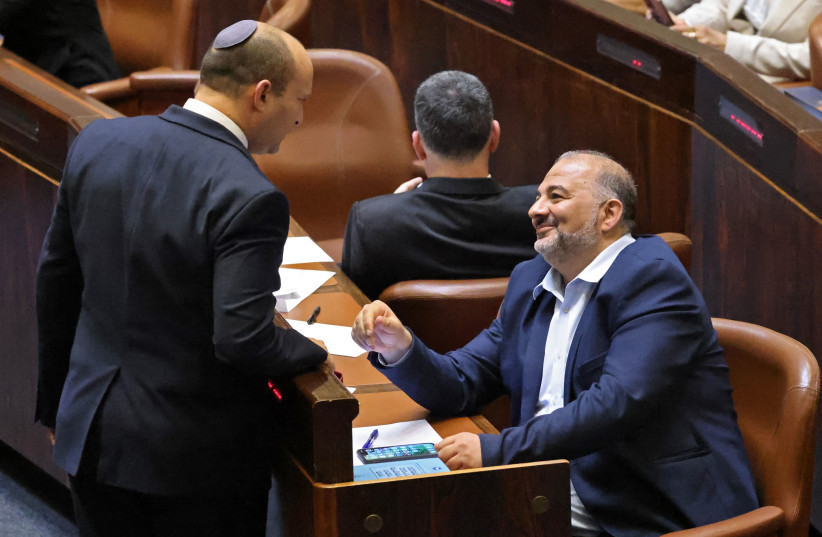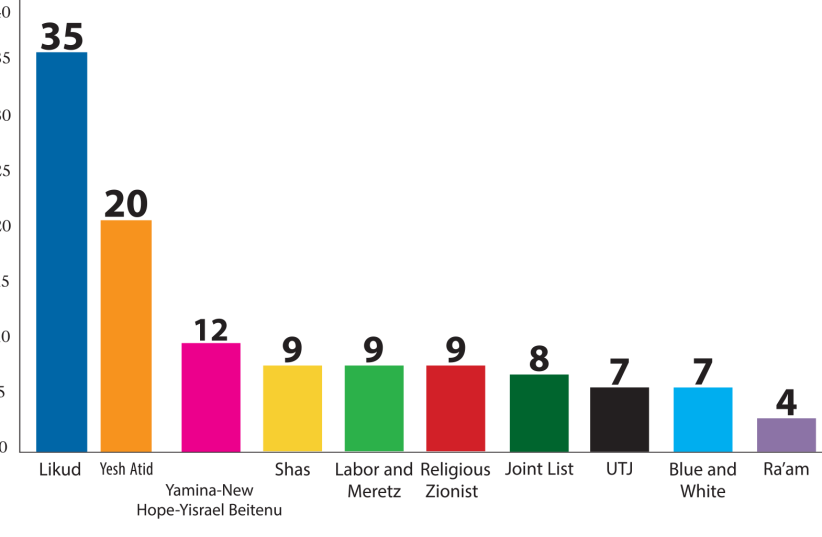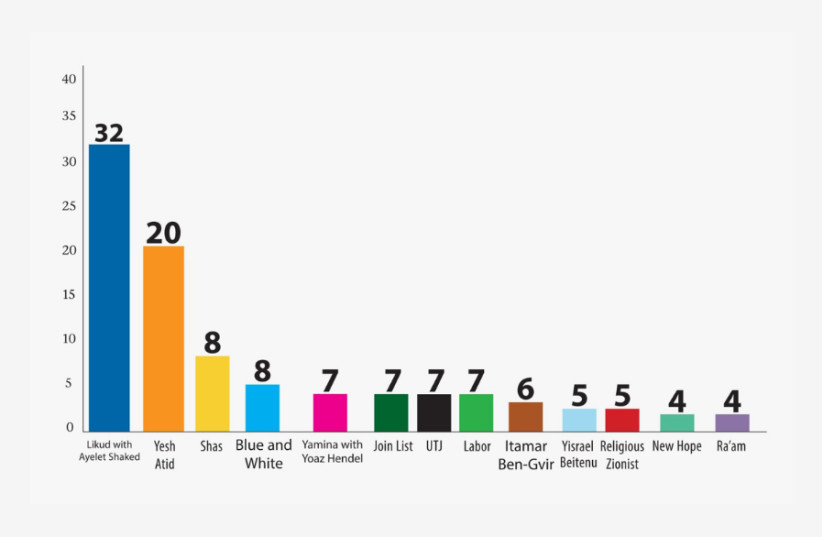by Gil Hoffman, Jerusalem Post Staff
Netanyahu cannot form government in three scenarios • Ben-Gvir would receive six seats
 |
Naftali Bennett and Mansour Abbas in the Knesset.
(photo credit: Emmanuel Dunand/AFP via Getty Images)
|
An overwhelming majority of Israelis do not want to see an Arab party in a future government that would be formed after the next election, according to a poll taken for The Jerusalem Post.
In addition, the groundbreaking poll found that in three different scenarios – of the current list of parties and different configurations of politicians and mergers – Benjamin Netanyahu’s Likud comes out on top but would consistently fall short of the 61 seats needed to form a coalition.
According to the poll conducted by Panels Research following a year of Ra’am (United Arab List) being in the coalition, 69% - almost three quarters of the country - do not want an Arab party in the government next time, 22% would be in favor, and nine percent said they do not know. The number of people opposed to an Arab party in the coalition includes 40 percent of Israeli-Arabs.
Elections with existing parties

Although the poll predicted a significant rise in support for Likud from 30 seats to 35, Netanyahu would still not be able to form a government. His bloc of Likud, Religious Zionist Party, Shas and United Torah Judaism would win 59 seats if an election would be held now. The parties in the current coalition would win 54 seats, and the Joint List seven.
The past two and a half years of political chaos would continue, with no possibility of forming a government without major ideological compromises.
The only way for Netanyahu to build a coalition if the parties remain as they are would be if New Hope or Yamina do not cross the electoral threshold, which would be a goal of his campaign in the next election.
In the poll, New Hope and Ra’am would barely cross the threshold. Meretz, with only 2.6%, would not cross. It was badly harmed by last Thursday’s rebellion against the coalition by one of its MKs, Ghaida Rinawie Zoabi.
The poll found that 65% of Israelis are not satisfied with the performance of Prime Minister Naftali Bennett, and only 30% said he is performing well. Five percent said they did not know.
Elections with mergers

Consequently, only 25% of those who voted in the last election for Bennett’s Yamina Party intend to vote for it next time. Another 20% of Yamina voters are undecided. Only one-third of those who said they would vote for Yamina next time are religious.
The poll presented different scenarios in which the political map could change ahead of the next election. It found that Interior Minister Ayelet Shaked would not help the Likud if she joined, and that if Itamar Ben-Gvir ran in his own party he would actually steal three seats from Netanyahu’s party even if it included Shaked, the popular Yamina politician long rumored to be considering a jump to Likud.
On the other hand, if Communications Minister Yoaz Hendel – currently a member of New Hope – would join forces with Bennett, he would help bring an additional seat to Yamina.
Elections if parties split and create new alliances

In another scenario presented of a merger of Yisrael Beytenu, Yamina and New Hope, the parties would win 12 seats, three less than they would win running separately. This option has long been discussed as something of a right-wing Republican Party-like faction in Israel. But based on the results of the Post poll, it is unlikely that such an option would gain traction.
There was talk last week of Labor and Meretz running together, which would win nine seats according to the poll. If the two ran separately, Labor would win seven and Meretz would not cross the threshold.
Rebel Yamina MK Amichai Chikli’s planned new party would not cross the 3.25% electoral threshold, which is usually around 150,000 votes, but with 2.7%, and considering that he has yet to announce the official formation of a party, he has a firm basis to build on.
Gil Hoffman, Jerusalem Post Staff
Source: https://www.jpost.com/israel-news/article-707827
No comments:
Post a Comment